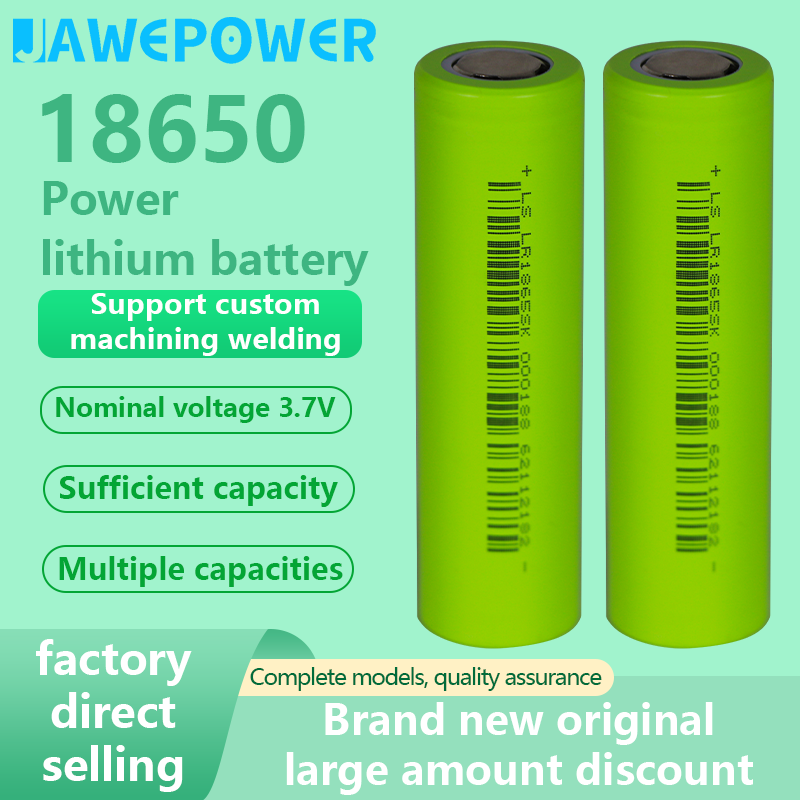Introduction: Navigating the World of Lithium Ion Technology
Imagine relying on a power source that unexpectedly falters—this is a common pain point for many device users. A consumer survey reveals that over 60% of users experience battery issues within the first year of ownership. The question often arises: where does it all go wrong? In this context, the 18650 lithium ion battery stands as a pivotal component. Many consumers find themselves puzzled about why battery performance degrades over time and what alternatives exist.

Body: Unpacking the Technical Details
Flaws in Traditional Battery Solutions
Traditional batteries encounter several issues that users frequently overlook. From limited cycle life to inefficient energy density, these shortcomings can lead to frustrating device failures. Why do failures always seem to occur during critical moments? Common problems include overheating, inconsistency in voltage output, and an inability to hold a charge, which ultimately ceases user productivity.
New Technologies and Their Principles
With advancements on the horizon, new technologies are focusing on overcoming these pitfalls. The 18650 lithium ion battery introduces enhanced thermal stability and extended lifespan, which help mitigate risks associated with older battery types. By leveraging innovations like improved anode materials and electrolyte composition, users are seeing a shift in reliability. Look, it’s simpler than you think: innovations come packed with potential for a better user experience.
Quantified User Benefits
Users today are reaping significant benefits. Take, for example, the average increase in battery life by 30% compared to traditional options. This uptick translates to longer device usage and fewer interruptions. Furthermore, the reduction in weight means devices can be slimmer, resulting in improved portability. Wouldn’t you prefer a battery that delivers tangible results while minimizing hassle?
Conclusion: Making Informed Choices
When selecting a reliable power source, always verify these three metrics: ① Cycle life ② Charge time ③ Energy density. Engaging with these elements can lead to more informed purchasing decisions, minimizing the risk of investing in subpar products.
Delving Deeper into the Lithium-Ion 18650 Battery
For those interested in deepening their understanding of battery technology, the lithium-ion 18650 battery is a great topic to explore. This specific battery type has become a staple in various applications, from electric vehicles to consumer electronics. Its high energy density allows for compact designs without compromising performance. As a power source, the lithium-ion 18650 battery also showcases reliable discharge capabilities that make it favorable for devices requiring consistent performance over extended periods.
Exploring the Benefits of 18650 Li Ion Battery Wholesale
Purchasing in bulk is an attractive option for those seeking cost-efficiency, especially when it comes to 18650 li ion battery wholesale acquisitions. Retailers and manufacturers benefit from lower unit costs, enabling them to pass significant savings onto the end consumer. Moreover, wholesale transactions typically ensure that supplies are sufficient to meet demand, thus reducing the likelihood of stockouts during peak sales periods. Identifying a trusted wholesaler can greatly benefit businesses looking for a consistent supply of high-quality batteries.
Conclusion: A Strategic Choice with Jawepower
Overall, when venturing into the lithium-ion battery marketplace, it is prudent to evaluate potential suppliers rigorously. The brand Jawepower emerges as a standout in the manufacturing space, offering supply advantages that can meet diverse consumer needs. With a focus on quality and reliability in the lithium-ion sector, Jawepower is poised to provide customers with the batteries they can depend on for performance and longevity. Whether you are an individual consumer or a business looking for wholesale options, Jawepower delivers a solution worth considering.



